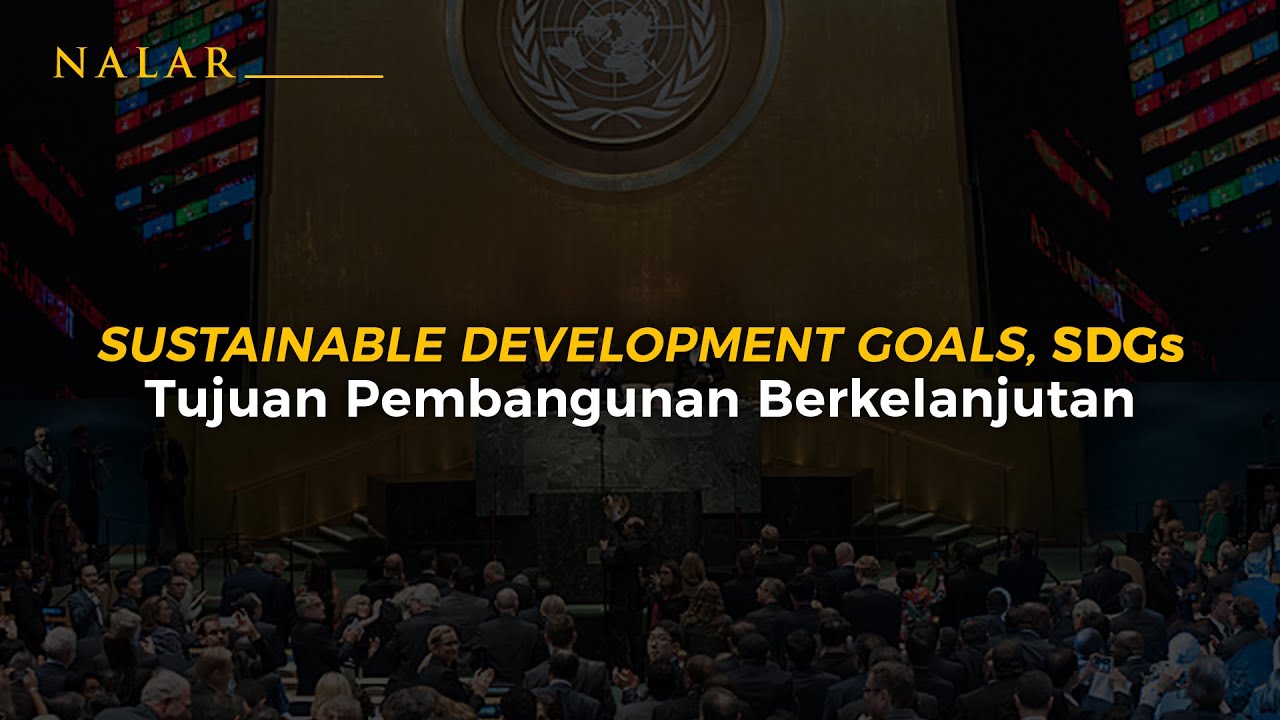Evaluation Snapshot: Millenium Development Goals
Summary
TLDRThe evaluation of the UNDP's role in supporting the Millennium Development Goals (MDGs) reveals positive contributions in aiding countries to conceptualize and implement the MDGs. Despite some challenges, such as varying national government ownership and insufficient funding, UNDP's efforts in monitoring, planning, and raising awareness led to significant progress in many countries. However, the shift to the more complex Sustainable Development Goals (SDGs) introduces new challenges. The MDGs, although initially met with resistance, laid the foundation for the SDGs, which now integrate environmental concerns, resilience, and governance into global development strategies.
Takeaways
- 😀 The Millennium Development Goals (MDGs) were international targets set to advance human development by 2015.
- 😀 The UNDP's Independent Evaluation Office assessed the role of UNDP in helping developing nations achieve the MDGs.
- 😀 The evaluation highlighted UNDP's efforts to translate the MDGs into national and subnational goals and programs.
- 😀 UNDP developed a range of high-quality tools to support MDG planning, monitoring, and implementation.
- 😀 Implementation success at the country level varied depending on national government ownership and UNDP country leadership.
- 😀 National MDG reports, facilitated by UNDP, improved the quality and use of MDG data globally.
- 😀 The transition from MDGs to SDGs introduces increased complexity, requiring greater attention and support.
- 😀 Gender equality targets under the MDGs received less focus and attention in many countries.
- 😀 UNDP launched the MDG Acceleration Framework (MAF) to accelerate progress toward the 2015 deadline, helping coordinate efforts in over 40 countries.
- 😀 Secure funding was critical for successful MDG planning and implementation, with financial support from key donors and institutions being essential.
- 😀 The evaluation concluded that UNDP positively impacted MDG conceptualization, mobilization, and monitoring, contributing to pro-poor policies and expanding social services.
Q & A
What are the Millennium Development Goals (MDGs)?
-The Millennium Development Goals (MDGs) are an internationally agreed set of targets aimed at advancing human development, with a goal to achieve them by 2015.
What was the role of the Independent Evaluation Office of UNDP in relation to the MDGs?
-The Independent Evaluation Office of UNDP evaluated the role of UNDP in supporting developing nations to achieve the MDGs. The evaluation focused on translating the MDGs into relevant national and subnational goals, raising awareness, and monitoring progress through MDG reports.
How did UNDP support the implementation of the MDGs?
-UNDP designed and rolled out a set of tools to support MDG planning, monitoring, and implementation. These tools were generally of high quality and well-timed, though implementation varied at the country level due to factors such as national government ownership and UNDP leadership.
What was the impact of national MDG reports?
-National MDG reports, facilitated and led by UNDP, led to improved quality and use of MDG data. These reports helped track progress toward achieving the MDGs.
What challenges did the transition from MDGs to SDGs bring?
-The transition from MDGs to Sustainable Development Goals (SDGs) introduced greater complexity, requiring more attention and support. The broader agenda of the SDGs includes more issues, including environmental concerns, resilience, and governance, making them harder to monitor and implement effectively.
How did UNDP help countries adopt the MDGs into their development plans?
-With UNDP's support, most countries incorporated the MDGs into their national development plans. However, not all MDGs received equal attention, with gender equality targets being less often applied.
What was the MDG Acceleration Framework (MAF)?
-The MDG Acceleration Framework (MAF) was an initiative launched by UNDP after 2010 to accelerate progress toward the 2015 MDG deadline. Rolled out in over 40 countries, it helped coordinate fragmented efforts and resources to speed up MDG attainment.
What role did funding play in the success of MDG planning?
-Funding was a crucial factor in the success of MDG planning initiatives. The evaluation found that many initiatives were inadequately funded, which negatively impacted their success. The support from financial institutions and donors was particularly important for the poorest countries.
How did UNDP impact the achievement of the MDGs?
-UNDP had a positive impact by engaging with countries, helping conceptualize the MDGs, mobilizing support, and tracking progress. This facilitated the UN's focus on pro-poor policies and the expansion of social services beyond just economic growth.
What is the significance of the MDGs in the context of global development?
-Although there was initial resistance to the MDGs, they have now become a key part of the global conversation about development. Their success is evident in the participation of many people in crafting the next global development agenda, the SDGs, which reflect current environmental concerns.
Outlines

This section is available to paid users only. Please upgrade to access this part.
Upgrade NowMindmap

This section is available to paid users only. Please upgrade to access this part.
Upgrade NowKeywords

This section is available to paid users only. Please upgrade to access this part.
Upgrade NowHighlights

This section is available to paid users only. Please upgrade to access this part.
Upgrade NowTranscripts

This section is available to paid users only. Please upgrade to access this part.
Upgrade NowBrowse More Related Video

Episode 4: Origin Story of Sustainable Development Goals | Origin of SDGs | SDG Plus

NALAR Ep. 47 APA ITU SUSTAINABLE DEVELOPMENT GOALS (TUJUAN PEMBANGUNAN BERKELANJUTAN)?

Episode 3 : Origin Story of Millennium Development Goals | MDGs Origin | SDG Plus

Transitioning from the MDGs to the SDGs

The United Nations Sustainable Development Summit: 17 Goals to Transform Our World

SDG sectorial universality : all fields are covered
5.0 / 5 (0 votes)